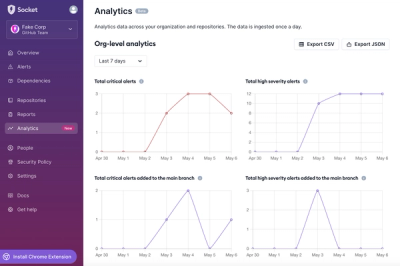Apollo HTTP Data Source

Optimized JSON HTTP Data Source for Apollo Server
- Uses Undici under the hood. It's around
54% faster than apollo-datasource-rest - Request Deduplication (LRU), Request Cache (TTL) and
stale-if-error Cache (TTL) - Support AbortController to manually cancel all running requests
- Support for Apollo Cache Storage backend
Documentation
View the Apollo Server documentation for data sources for more details.
Usage
To get started, install the apollo-datasource-http package:
npm install apollo-datasource-http
To define a data source, extend the HTTPDataSource class and implement the data fetching methods that your resolvers require. Data sources can then be provided via the dataSources property to the ApolloServer constructor, as demonstrated in the section below.
const baseURL = 'https://movies-api.example.com'
const pool = new Pool(baseURL)
const server = new ApolloServer({
typeDefs,
resolvers,
dataSources: () => {
return {
moviesAPI: new MoviesAPI(baseURL, pool),
}
},
})
Your implementation of these methods can call on convenience methods built into the HTTPDataSource class to perform HTTP requests, while making it easy to pass different options and handle errors.
import { Pool } from 'undici'
import { HTTPDataSource } from 'apollo-datasource-http'
const datasource = new (class MoviesAPI extends HTTPDataSource {
constructor(baseURL: string, pool: Pool) {
super(baseURL, {
pool,
clientOptions: {
bodyTimeout: 100,
headersTimeout: 100,
},
requestOptions: {
headers: {
'X-Client': 'client',
},
},
})
}
onCacheKeyCalculation(request: Request): string {
}
async onRequest(request: Request): Promise<void> {
request.signal = this.context.abortController.signal
setTimeout(() => {
this.context.abortController.abort()
}, 3000).unref()
}
onResponse<TResult = unknown>(request: Request, response: Response<TResult>): Response<TResult> {
return super.onResponse(request, response)
}
onError(error: RequestError, request: Request): void {
}
async getMovie(id) {
return this.get(`/movies/${id}`, {
query: {
a: 1,
},
context: {
tracingName: 'getMovie',
},
headers: {
'X-Foo': 'bar',
},
requestCache: {
maxTtl: 1000 * 60 * 10,
maxTtlIfError: 1000 * 60 * 30,
},
})
}
})()
Hooks
onCacheKeyCalculation - Returns the cache key for request memoization.onRequest - Is executed before a request is made. This can be used to intercept requests (setting header, timeouts ...).onResponse - Is executed when a response has been received. This can be used to alter the response before it is passed to caller or to log errors.onError - Is executed for any request error.
Error handling
The http client throws for unsuccessful responses (statusCode >= 400). In case of an request error onError is executed. By default the error is rethrown in form of the original error.
Production checklist
This setup is in use with Redis. If you use Redis ensure that limits are set:
maxmemory 10mb
maxmemory-policy allkeys-lru
This will limit the cache to 10MB and removes the least recently used keys from the cache when the cache hits the limits.



